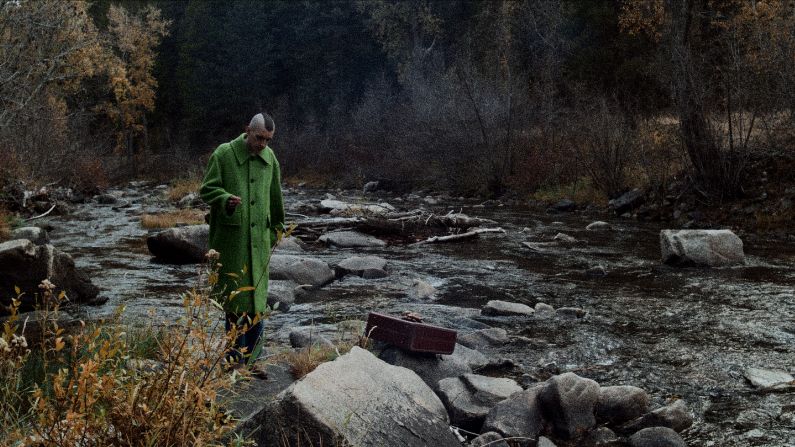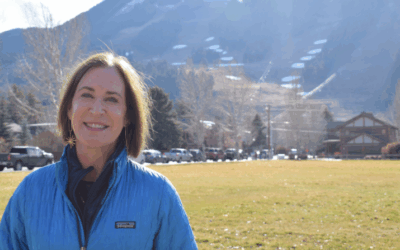Boise-based artist Trevor Powers (aka Youth Lagoon) rose to fame in 2011 with his debut album “The Year of Hibernation,” now considered a dream pop classic.
Since then Powers has released subsequent albums under the Youth Lagoon moniker as well as more experimental efforts under his own name.
In 2021, a severe reaction to an over-the-counter medication turned Powers’ world upside down, resulting in the loss of his ability to speak, let alone sing, for months on end.
After some deep soul-searching and reassessment, Powers emerged from the trauma with a renewed sense of purpose, a rededication to the Mountain West and a true creative awakening. His critically acclaimed new album, “Heaven Is A Junkyard,” is a triumph described as mutant Americana in a world of love, drugs, storytelling and miracles — held together by Powers’ voice and an upright piano.
In advance of his show in Jackson on Monday, July 31 at the Center for the Arts, Youth Lagoon aka Trevor Powers joined us, over the phone, in the KHOL studios.
The following interview transcript has been edited for clarity and brevity. This conversation was recorded on Friday, June 16.
JACK CATLIN/KHOL: You made a big splash on the scene in 2011 with your debut album, “Year of Hibernation.” Fans demanded a sequel to that record but you were interested in doing other things musically. What was that rapid rise in popularity like for you and how did you deal with juggling expectations versus your own creative vision?
TREVOR POWERS: I’m the kind of person that doesn’t let someone else’s expectation or view of what I’m doing infiltrate what it is that I’m trying to say through my music. So none of that ever deterred me to go down the paths I wanted to go down, but there was that frustration always beneath the surface. From an industry vantage point and also from a fan vantage point, I got so tired of people wanting this one thing when I had already done it. I’m the kind of person who will never make the same thing twice. Something’s already been made. And so in my brain, I’m moving on.
I can pull from other things that I’ve done and build on them and create something new out of it but if I was going to do the same thing twice, not only do I feel like I’d be wasting my time, but everyone else’s time. And it’s just at that point pretty boring. And so that’s why around 2015, maybe early 2016, I had to burn that house to the ground because it wasn’t resonating with me anymore.
I had a series of events that took me to this place of deep self-love, which was a brand new concept for me. And in that, I realized if I go back to these places in my mind that I deemed dead. These things that were burnt, going back to those places where I am now, using those tools, using those ideas as new tools to play with and apply it to all of these new influences and inspirations. I found that’s where the freshness is and that’s where I am because it’s not about compartmentalizing your brain into ‘This is who I was and then this is who I am.’ It’s about all of the pieces, putting them all together, and realizing that it’s the sum of all parties to create who we are today and will create who we are tomorrow.
KHOL: In October 2021, you had a life-altering experience, a severe reaction to some medication. I wanted to touch on the cathartic aspect of it, the shedding of the skin of the Youth Lagoon moniker. Going through that trauma with your medical condition where you lost your ability to speak and the ability to sing for months. How did that experience shift your perspective and lead you to this whole new kind of creative awakening or inspiration for the new album “Heaven is A Junkyard?”
POWERS: It made me not take anything for granted. The main way I communicated was by texting. If I was hanging out with someone, we would just text or I would write things down on my phone or I had a pen and paper and I would write things down. I’d be hanging out with my best friend, Ty Williams. He’s the one that did all the music videos. And early on in that process, even of us taking some photos together and all that, it was the pen-and-paper route or texting. You feel not only limited but demolished as a human being when you can’t communicate in the ways that everyone else can.
So it just shifted my entire view on life. It woke me up. It made it to where it was such a leveling experience and took away all my sense of self. And that was something that I had to rebuild from the ground up to where I actually had to go into these deep, dark parts of my soul and ask bigger questions. I don’t think I ever would have asked had I not been forced.
It made everything look a little bit different. It made everything sound a little bit different and made everything feel a little bit different. Even things that I had already loved, like certain movies, it made it to where I could pull from those in a deeper way. And yeah, it’s like it took away the numbness. I had been numb for a really long time. Throughout the numbness, I made a lot of things that to this day I’m still incredibly proud of. But I was still numb and now I’m not. That’s the biggest difference.
KHOL: Let’s circle back to Boise because another quote I loved of yours was ‘I’ve always written about faraway things. That was my way of running from home. But the best material has been right in front of me this whole time in Idaho.’ What made you realize that about Idaho, your hometown? And how did that reconnection, that falling back in love with Boise grow into what it is now?
POWERS: One of the things that woke me up to it a little bit was I was watching this documentary on David Lynch called “The Art Life.” And Lynch talked about a similar thing where he said he said something along the lines of when he was young his street was so exciting. There was an entire universe within the realm of just his street. And that’s not even counting the street down from that and that and that. And there was something about when I had watched that and where I was at in my life at that time, and living in Idaho my whole life to where I’ve taken some much of it for granted. I’ve lived here since I was three. So it’s always been the only [place] I’ve ever known.
But yeah, when I had seen that [The Art Life] it had done something for me mentally, physically, and spiritually.I started noticing things on my street that I hadn’t before, or in certain conversations. Everything was magnified and I could see things much clearer. If I would have moved away when I was younger or really at any point in my life, I think I would have missed out on so much of what it is that I’m experiencing now.
This is a weird example, but it’s almost like the difference between someone who is in a long-term relationship and you get to year three or four or five or ten or 15, and the longer that you’re with that person, as long as it’s a healthy relationship, the more beauty expands, the more the connection deepens. It turns into such an almost spiritual relationship and such a gift to know someone on that kind of level versus someone who is in a new relationship constantly. And they get to the year mark and they get bored and they move on to someone else. You’re actually getting so much less out of that experience and you’re really doing yourself a huge disservice just in life in general. I feel like the meat of life and the beauty of life comes from when things get difficult and you stick with it and you get to the other side. You break through that brick wall. There’s revelation there, there’s transcendence there.
And yeah, I think that the same thing can be said of home. You stick with whatever it is that you can call home and home can obviously change. But I think when you invest some time with a place and the energy that that place gives off and you’re in tune with it, that over time it can grow and you can experience more and more from it rather than less and less, which I think a lot of people have the misconception that the longer you live somewhere, the less it gives you. And I would make the exact opposite argument.
Listen above for KHOL’s full conversation with Trevor Powers aka Youth Lagoon.






